The camshaft is a crucial component in an engine, controlling the timing of the engine’s valves to ensure optimal performance.
A legendary camshaft is one that has earned a reputation for exceptional reliability, performance, and longevity, often becoming synonymous with the success of certain vehicles.
On the other hand, camshaft failure issues are a reality that some cars face, leading to costly repairs and, in some cases, major engine problems.
While a durable camshaft can significantly enhance engine efficiency and power, poor camshaft design or faulty components can lead to catastrophic engine failure.
This article takes a closer look at five cars that are known for their legendary camshafts, which have stood the test of time, and five cars that have struggled with camshaft failure issues.
By exploring both sides of the spectrum, we aim to provide a comprehensive understanding of how camshaft performance can impact a vehicle’s overall durability and reliability.
Whether you’re a car enthusiast or someone looking to buy a used car, knowing which cars feature robust camshafts and which ones may present future risks can be incredibly helpful when making an informed decision.
Also Read: 5 Cars That Make Great Weekend Warriors and 5 That Fall Flat
5 Cars With Legendary Camshafts
When it comes to legendary camshafts, certain cars have set the benchmark for durability, power, and smooth performance.
These vehicles are equipped with camshafts that are not only known for their superior engineering but have also stood the test of time, contributing to the longevity and reliability of their engines.
A well-designed camshaft ensures that the engine’s valves open and close at precisely the right time, maximizing the combustion process and improving overall performance.
The camshafts in these cars are often crafted from materials that are built to withstand the rigors of high-revving engines, long-term wear, and extreme conditions.
For example, cars that are equipped with performance-focused engines or ones designed for heavy-duty use typically come with camshafts that prioritize strength, precision, and reliability.
Enthusiasts and mechanics alike often praise these cars for how well their engines perform, thanks to these high-quality camshafts.
Moreover, these legendary camshafts are often a key reason why these cars maintain their value and reputation over time.
Whether it’s a sports car with a high-performance engine or a classic model that has withstood the test of time, these camshafts contribute significantly to the vehicle’s legacy.
They don’t just help the car run smoothly—they also give the car a distinct character, from the growl of an engine to the smoothness of its power delivery.
Now, let’s take a closer look at five cars that feature camshafts that are revered for their legendary status, contributing to their exceptional engine performance and reputation for reliability.
1. Nissan Skyline GT-R (R32, R33, R34)
The Nissan Skyline GT-R is a revered icon in the world of performance cars, largely due to its remarkable RB26DETT engine.
One of the standout features of this engine is its camshaft design, which has earned legendary status for its robustness and high-performance capabilities.
The RB26DETT’s twin-turbocharged inline-six is fitted with camshafts that provide precise valve timing, enhancing the engine’s power delivery and responsiveness.
Even in demanding environments, such as motorsport applications, the camshaft system holds up remarkably well, ensuring the engine performs consistently at its peak.
The camshaft’s durability is often highlighted by tuners and enthusiasts who use the RB26DETT as a foundation for high-output builds. Despite being pushed to their limits, these engines continue to impress with minimal camshaft issues.
This level of reliability is one of the reasons the Skyline GT-R is considered a performance legend. The engine’s design allows for smooth and rapid acceleration, combined with impressive top-end power, making it a favorite in the world of tuners.
Its legacy continues today, as the Skyline GT-R is still remembered for its contribution to performance car engineering, and its camshaft system plays a crucial role in that reputation.

For anyone looking to own or restore a Skyline GT-R, the RB26DETT’s camshaft system is considered one of its most durable and legendary components.
Even in high-mileage cars, these camshafts have proven to stand the test of time with proper maintenance.
2. Chevrolet Corvette C5 (LS1 Engine)
The Chevrolet Corvette C5, powered by the LS1 V8 engine, has solidified its place as an American performance icon, partly due to the reliability and performance of its camshaft system.
The LS1’s camshaft is designed to provide optimal valve timing and ensure efficient combustion, delivering exceptional horsepower and torque across a wide RPM range.
This camshaft plays a key role in the engine’s smooth and responsive nature, whether cruising down highways or accelerating at high speeds.
The LS1’s camshaft is made from high-strength materials, enabling it to withstand the demands of high-performance driving without skipping a beat.
Even in high-mileage examples, camshaft-related failures are incredibly rare, which speaks to the engineering brilliance behind the LS1 engine.
Enthusiasts often highlight the durability and longevity of this camshaft as one of the reasons the Corvette C5 remains a sought-after vehicle, both for daily driving and track use.
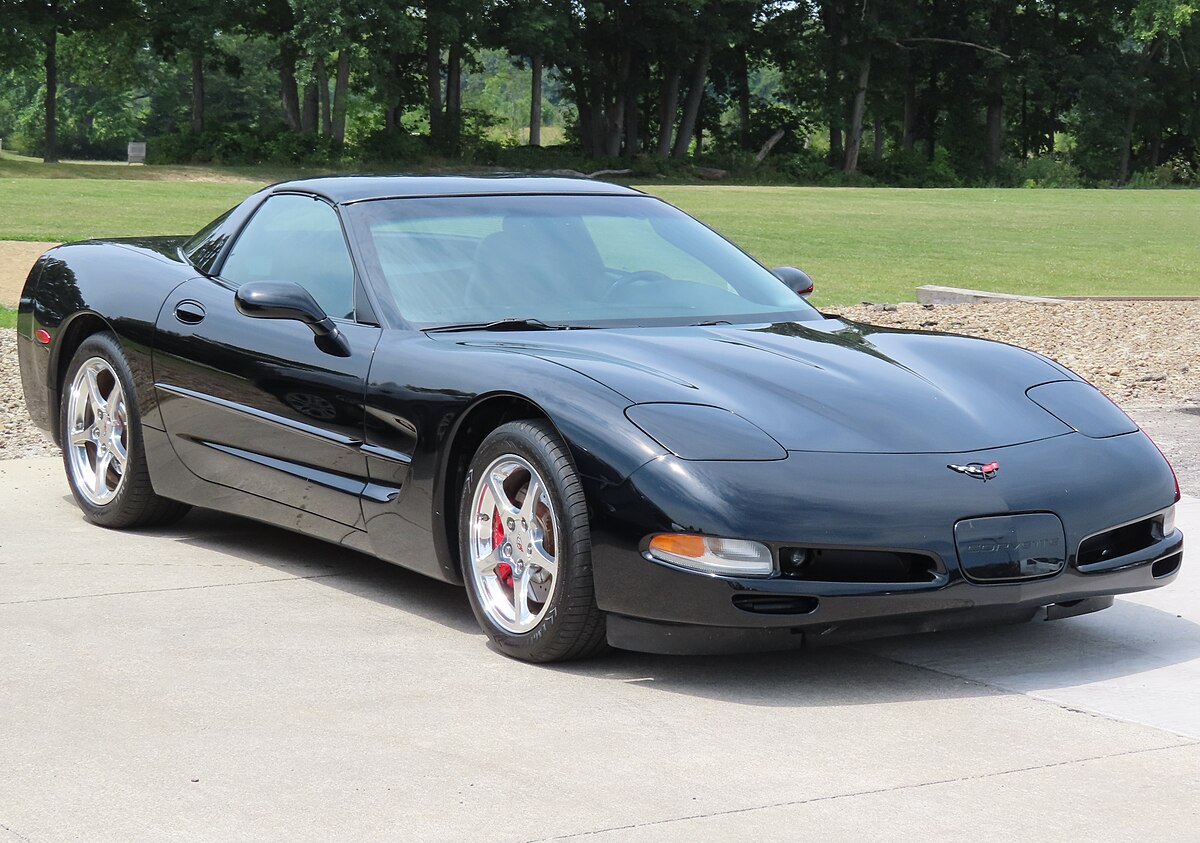
Moreover, the LS1 engine’s camshaft is well-suited for aftermarket modifications, with many owners opting to install performance camshafts that boost power while still maintaining reliability.
The fact that these camshafts can endure such modifications without failure further enhances the LS1 engine’s legendary status.
When you think of an engine that can handle both factory performance and enthusiast-driven upgrades, the LS1’s camshaft is one of the prime examples of an outstanding, long-lasting design.
3. Ford Mustang (5.0L Coyote Engine)
The Ford Mustang’s 5.0L Coyote engine is a modern marvel of performance engineering, known for its robust camshaft design.
Introduced in the 2011 Mustang GT, the Coyote engine features a dual-overhead camshaft system that provides optimal valve timing and enhances the engine’s power output.
This setup allows for smooth acceleration across the RPM range, whether on the street or the track.
One of the standout features of the Coyote’s camshaft is its ability to provide high-revving performance without compromising durability.
The camshaft system in the 5.0L Coyote is engineered to withstand the stresses of aggressive driving, making it one of the most reliable V8 engines in modern performance cars.
Whether for casual street driving or spirited track sessions, the Coyote’s camshaft ensures a consistent, smooth power delivery that has earned it a reputation for excellence.
Additionally, the Coyote engine’s camshaft is designed for tunability, allowing for aftermarket upgrades to further increase power without sacrificing reliability.
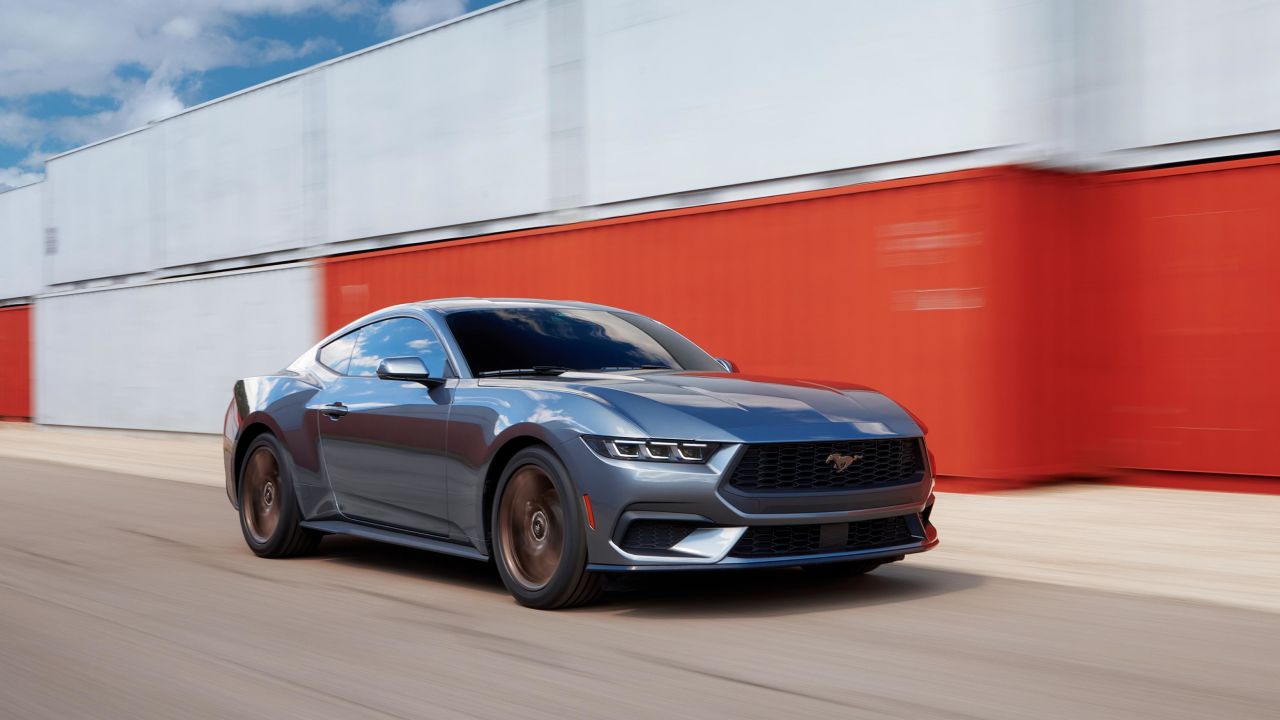
This flexibility has made the 5.0L Coyote a favorite among tuners and enthusiasts who demand both performance and longevity. Whether in a stock configuration or with modifications, the camshaft system’s performance remains exceptional.
The 5.0L Coyote engine and its camshaft contribute significantly to the Ford Mustang’s legacy as a high-performance, dependable muscle car that continues to dominate both on the road and at the track.
4. Porsche 911 (996 and 997 – M96/M97 Engines)
The Porsche 911, particularly the M96 and M97 engines found in the 996 and 997 generations, features camshafts that are celebrated for their precision and performance, contributing to the car’s renowned handling and driving experience.
These camshafts are designed to deliver smooth power delivery, especially in higher RPM ranges, making the Porsche 911 an exhilarating car to drive.
The camshaft system in these engines allows for optimal valve timing, contributing to the 911’s sharp throttle response and dynamic driving characteristics.
However, while the camshafts in these engines are generally reliable, the 996 and early 997 models have been known to experience issues related to IMS (Intermediate Shaft) bearing failure.
This failure, while not directly tied to the camshaft itself, can result in camshaft misalignment or other engine issues if not properly addressed.
That said, when the IMS bearing issue is proactively managed, the camshaft and the rest of the engine can continue to perform without significant problems.

For those seeking a Porsche 911 with the M96 or M97 engine, it’s crucial to ensure that proper maintenance has been carried out, particularly concerning the IMS bearing.
When well-maintained, the camshaft system in these engines remains an impressive example of Porsche’s engineering, contributing to the car’s legacy as a high-performance sports car.
5. Honda Civic Type R (K20 Engine)
The Honda Civic Type R, equipped with the K20 engine, is another example of a vehicle with a legendary camshaft system.
The K20 is an inline-four engine that is renowned for its high-revving nature and impressive performance, and its camshaft plays a pivotal role in achieving these traits.
The camshaft is designed to optimize valve timing for peak power, allowing the engine to produce impressive horsepower and torque while maintaining efficiency.
What makes the K20’s camshaft system legendary is its ability to sustain high RPMs without significant wear or failure.
The engine’s camshaft is engineered to endure the stresses of high-performance driving, making it a favorite for tuners and enthusiasts looking to extract maximum performance from their vehicles.
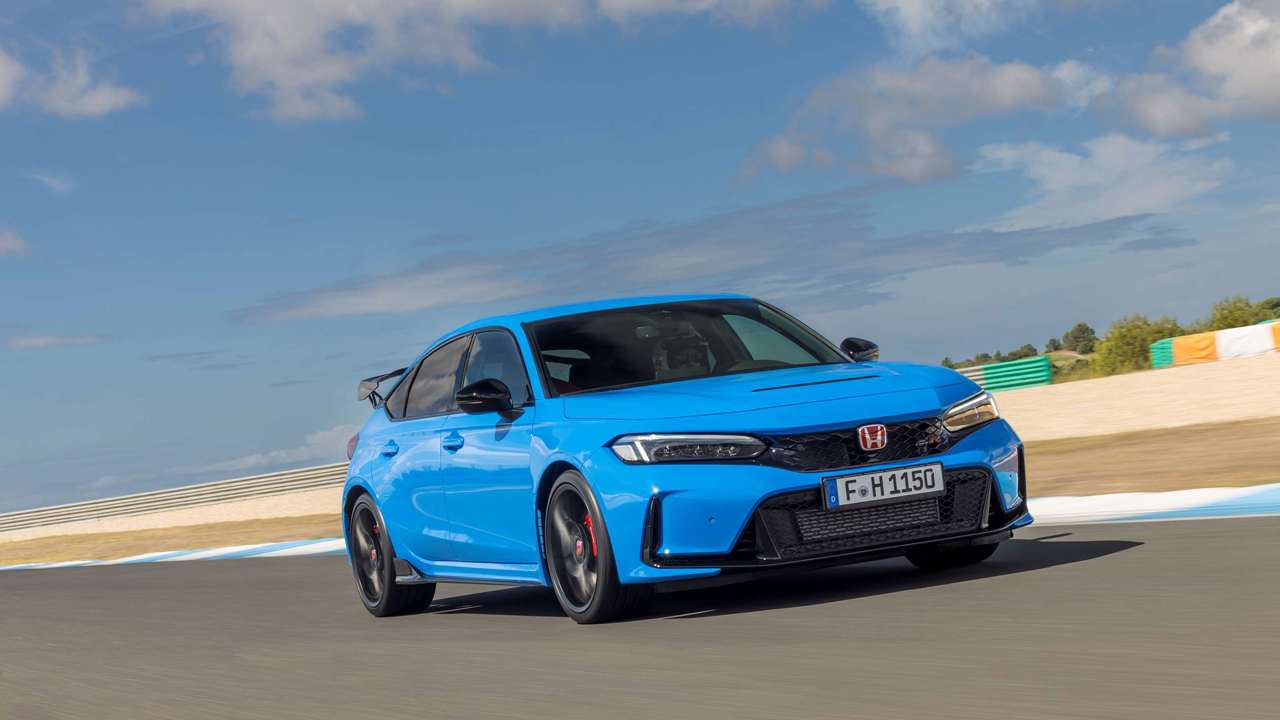
Additionally, the K20 engine’s camshaft is designed for precision, ensuring smooth and responsive acceleration throughout the entire power band.
Even with high mileage, the camshaft in the K20 engine remains durable, which has contributed to the engine’s reputation for longevity.
The K20’s camshaft is a critical component in the engine’s ability to maintain its high-revving capabilities without sacrificing reliability.
Whether on the street or at the racetrack, the K20 engine continues to impress with its performance, and its camshaft is an integral part of what makes this engine legendary in the world of performance cars.
5 Cars With Camshaft Failure Issues
While many cars benefit from robust camshaft systems that contribute to their long-term reliability, others have suffered from camshaft-related failures, often leading to costly repairs and significant engine problems.
A camshaft’s job is crucial to ensuring that an engine runs efficiently, with precise timing for the opening and closing of the engine’s valves. However, when a camshaft fails, it can result in poor engine performance, loss of power, and even complete engine failure.
Various factors contribute to camshaft failures, including poor manufacturing quality, faulty components, inadequate lubrication, and poor maintenance.
In some cases, engine designs that place excessive stress on the camshaft or lack proper cooling mechanisms can also accelerate wear and lead to eventual failure. These issues can be particularly problematic in cars that are pushed to their limits or have high mileage.
Despite the increasing quality control measures in modern automotive manufacturing, certain vehicles are notorious for their camshaft-related issues.
These failures can be exacerbated in high-performance engines, where precision and reliability are even more critical.
For car buyers or enthusiasts, understanding which cars are prone to camshaft failure is crucial, as it can help prevent unexpected repairs and offer insight into potential vehicle reliability.
In this section, we’ll examine five cars that have experienced camshaft failure issues. These vehicles, while offering excellent performance and features in other areas, have struggled with camshaft durability.
From luxury sedans to sports cars, we’ll break down the reasons behind these camshaft failures and explore the impact they have had on their respective models’ reputation and reliability.
1. Audi A4 (1.8T Engine)
The Audi A4 with the 1.8T engine, particularly models produced in the early 2000s, is known for camshaft failure issues. The 1.8T engine is widely praised for its turbocharged performance and fuel efficiency.
However, a design flaw in the camshaft itself, coupled with insufficient oil circulation, often led to premature wear and failure of the camshaft. As a result, many owners experienced engine misfires, loss of power, and rough idle as early as 80,000 miles.
The camshaft failure typically occurs because of a worn-out camshaft timing gear, which can lead to the timing belt slipping or misaligning. This causes the engine’s valves and pistons to be out of sync, resulting in catastrophic engine damage.
Audi even extended warranties for the 1.8T engine to address this issue, and while the camshaft issue isn’t a certainty in every vehicle, it has become a notable concern for used car buyers.
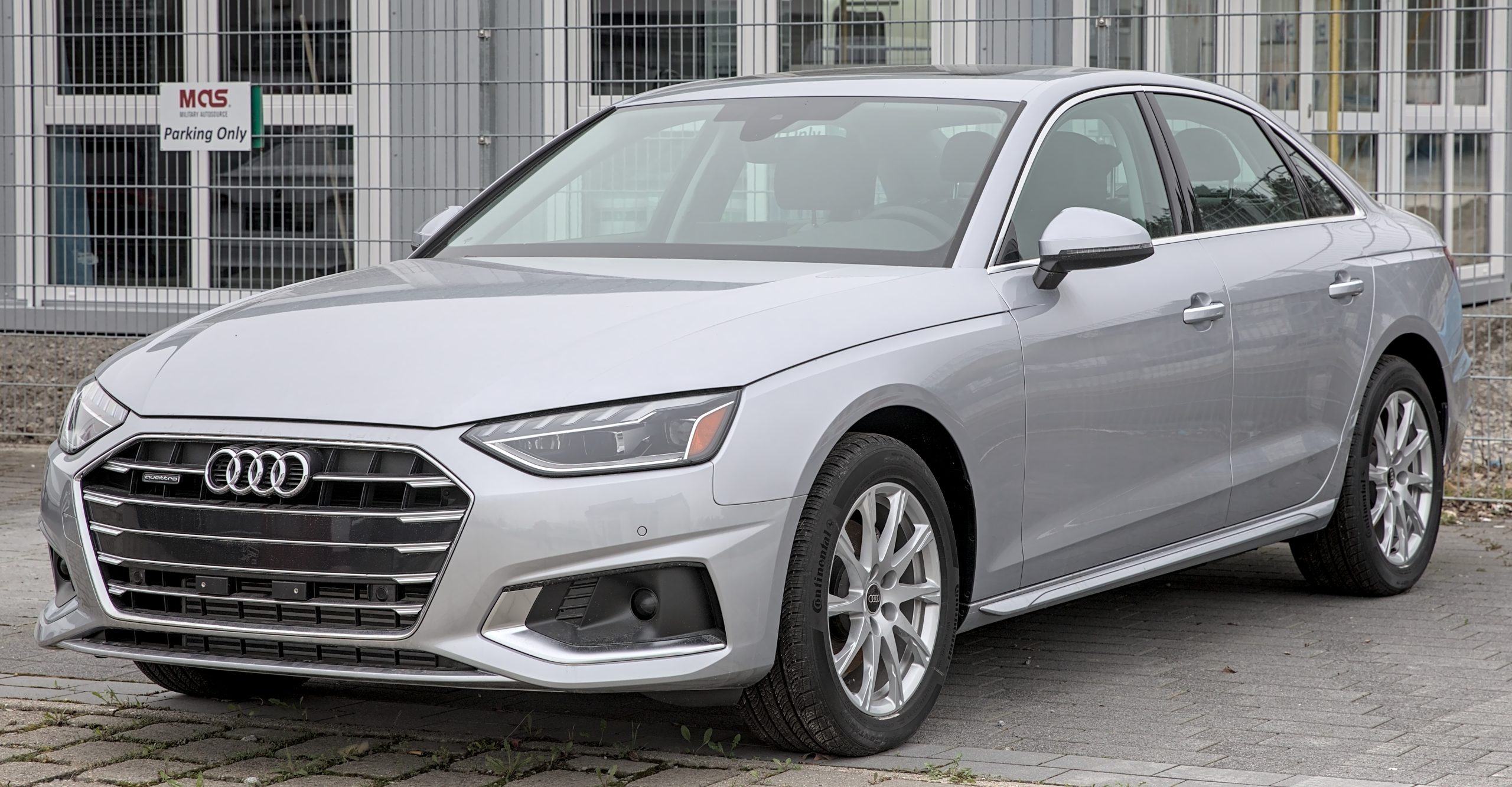
Regular oil changes and the use of high-quality synthetic oils can help mitigate some of the risks associated with this camshaft issue, but for many owners, this has been a costly problem that often leads to engine replacement or significant repairs.
Despite this, the 1.8T engine is still a popular choice in the used market, but potential buyers should be aware of the camshaft issues that have affected some of these vehicles.
2. BMW E46 3 Series (M54 Engine)
The BMW E46 3 Series, particularly models with the M54 engine, is another vehicle that has been associated with camshaft issues. The M54 engine, found in various BMW models from the early 2000s, has been praised for its smooth performance and reliability.
However, the camshaft in this engine, along with its variable valve timing system, is prone to failure due to oil sludge buildup and improper lubrication.
Over time, the camshaft and associated components can become damaged from the lack of sufficient oil flow, leading to premature wear.
One of the most common problems in these engines is the failure of the VANOS (variable valve timing) system, which is directly linked to the camshaft. When the VANOS system fails, it can result in rough idle, poor acceleration, and a significant loss of power.
The issue often becomes exacerbated by inadequate maintenance, particularly irregular oil changes, which contribute to sludge buildup that can clog the oil passages and reduce lubrication to the camshaft.
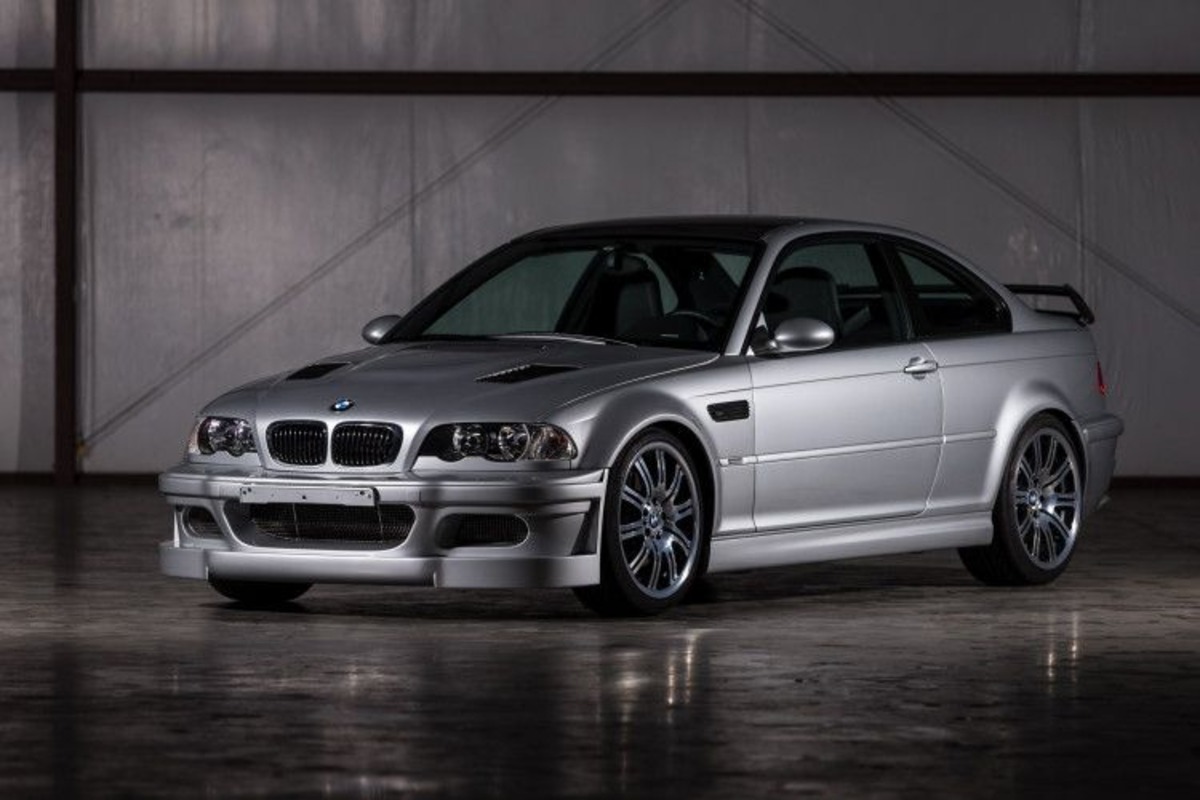
While the M54 engine itself is generally durable, these camshaft-related issues have caused many owners to face expensive repairs. In some cases, the camshaft failure may even lead to a complete engine failure if the problem is not addressed in time.
Potential buyers of used E46 3 Series models should be mindful of this camshaft issue and ensure that the vehicle has been properly maintained.
3. Volkswagen Golf GTI (2.0T FSI Engine)
The Volkswagen Golf GTI equipped with the 2.0T FSI engine, particularly in the mid-2000s models, has gained notoriety for camshaft failure issues.
The 2.0T FSI engine, part of VW’s turbocharged lineup, is known for delivering strong performance, but it also has a history of camshaft-related problems.
One of the most common issues with this engine is the failure of the camshaft follower, which is responsible for controlling the intake camshaft timing.
When the camshaft follower wears out, it can cause the camshaft to lose its timing, resulting in a loss of power, poor fuel efficiency, and rough engine operation.
The issue is often exacerbated by poor maintenance, especially the failure to replace the camshaft follower at regular intervals. If left unchecked, the camshaft itself can become damaged, leading to even more costly repairs.
Owners who have experienced this issue often report significant engine noise, especially when starting the engine cold. The camshaft follower’s failure can also lead to a check engine light or error codes related to timing issues.
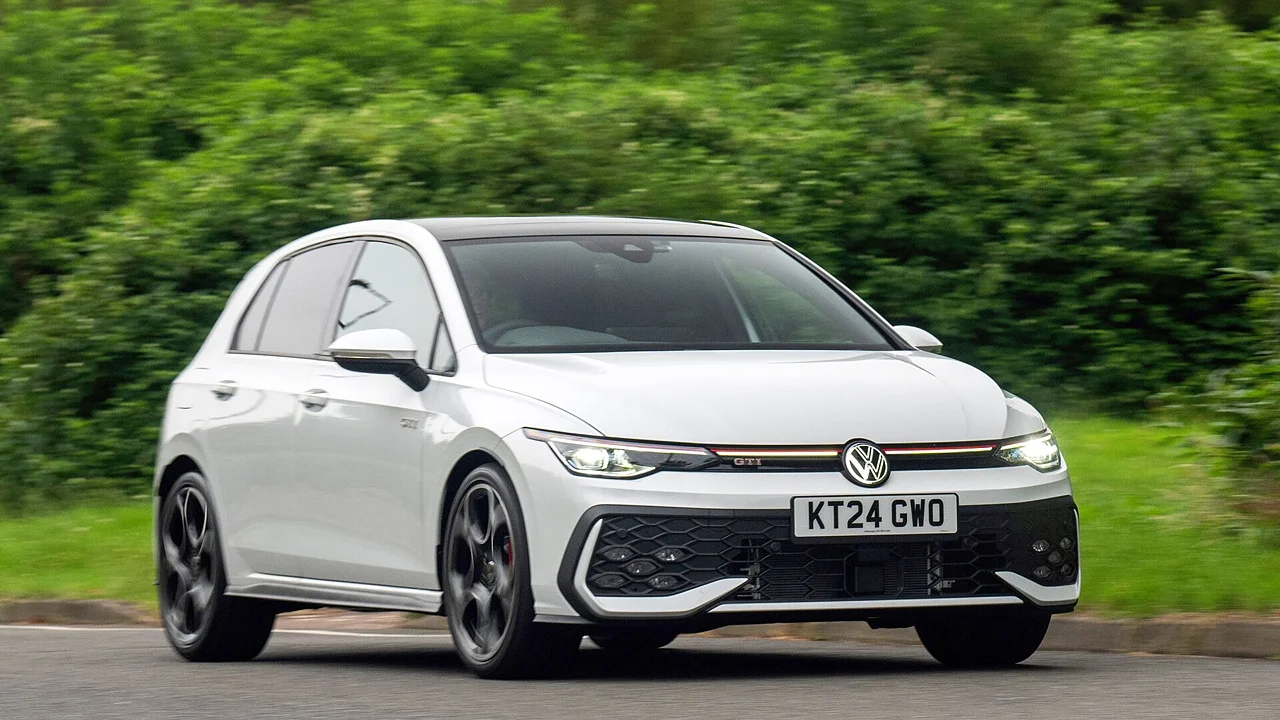
This problem is particularly common in the 2.0T FSI engines found in the Golf GTI, Jetta, and Audi A3 models from the mid-2000s.
Regular maintenance, including changing the camshaft follower as recommended by the manufacturer, can help mitigate this issue, but for many owners, the failure of the camshaft follower has been a significant point of frustration and repair costs.
4. Subaru WRX (EJ20 and EJ25 Engines)
The Subaru WRX, particularly models equipped with the EJ20 and EJ25 turbocharged engines, has been prone to camshaft issues, often related to improper lubrication and high-stress performance driving.
The camshafts in these engines, while generally reliable, can suffer from excessive wear due to the high RPMs and aggressive driving habits that are common among WRX owners.
The problem typically arises when the camshaft is not properly lubricated, leading to premature wear and eventual failure.
This issue can often be traced back to either poor oil quality, insufficient oil changes, or improper maintenance of the engine’s oil pump system.
When the camshaft wears out, it can cause a variety of problems, including rough idle, engine misfires, and loss of power. In some severe cases, camshaft failure can lead to complete engine failure if the problem is not addressed in time.
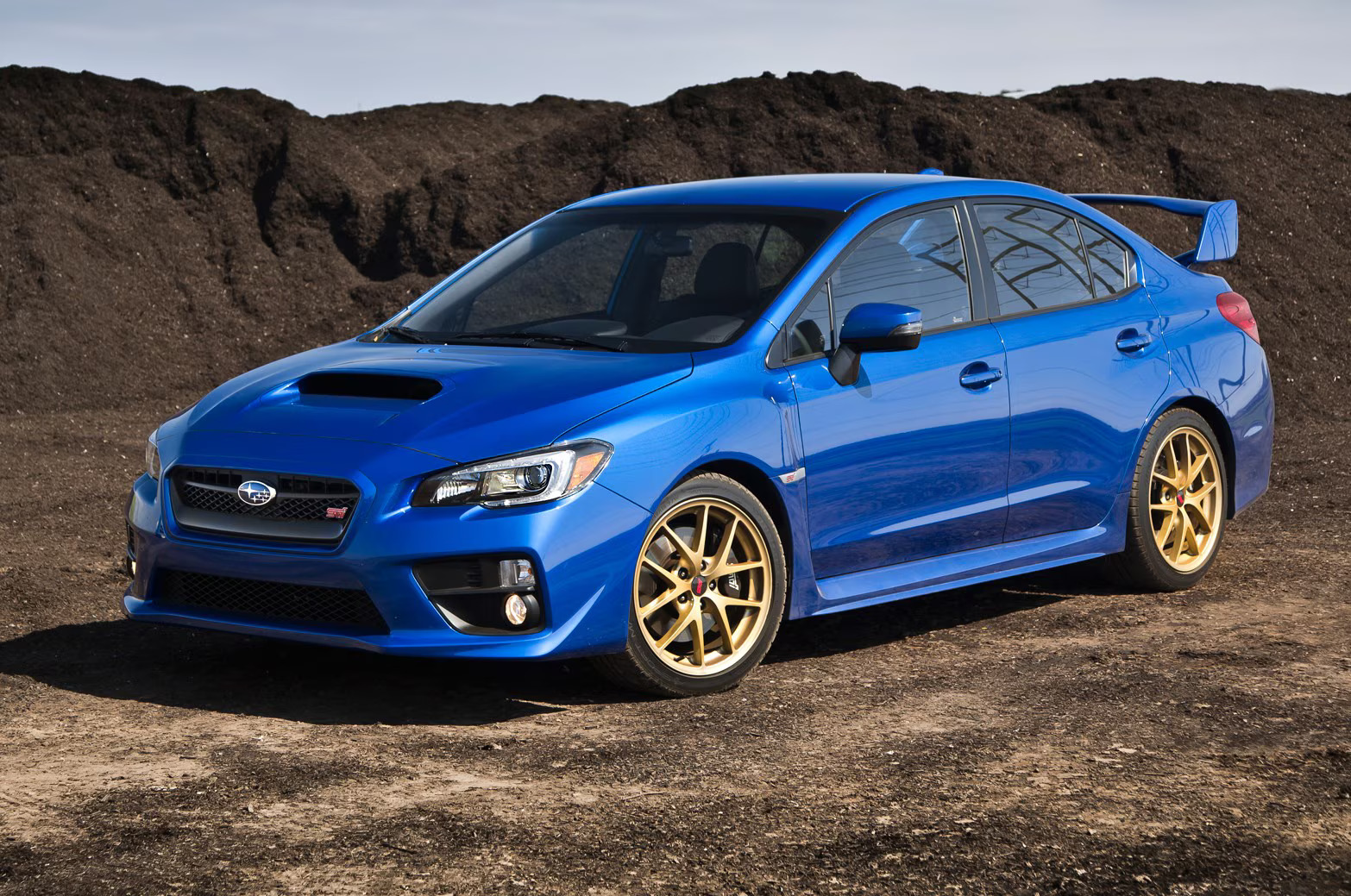
Subaru has acknowledged the camshaft issues in these engines, particularly in high-mileage or heavily modified vehicles.
To avoid such failures, it is crucial to ensure that the vehicle receives regular oil changes with high-quality synthetic oil and that the oil pump system is maintained.
While the WRX is known for its performance and reliability, owners must be diligent in performing regular maintenance to prevent camshaft-related issues from becoming a significant problem.
5. Mercedes-Benz E-Class (M112 Engine)
The Mercedes-Benz E-Class with the M112 engine, found in various models from the late 1990s and early 2000s, is known for camshaft failure issues, particularly in high-mileage examples.
The M112 engine, a V6 configuration, is generally a reliable powertrain. However, some E-Class models equipped with this engine have experienced camshaft wear due to improper lubrication and poor-quality oil.
Over time, the camshaft sprockets in these engines can wear out, leading to misalignment of the camshaft and a loss of synchronization between the engine’s valves and pistons.
This can cause the engine to run rough, with a noticeable drop in power and performance. In severe cases, camshaft failure can lead to complete engine damage, requiring costly repairs or even engine replacement.
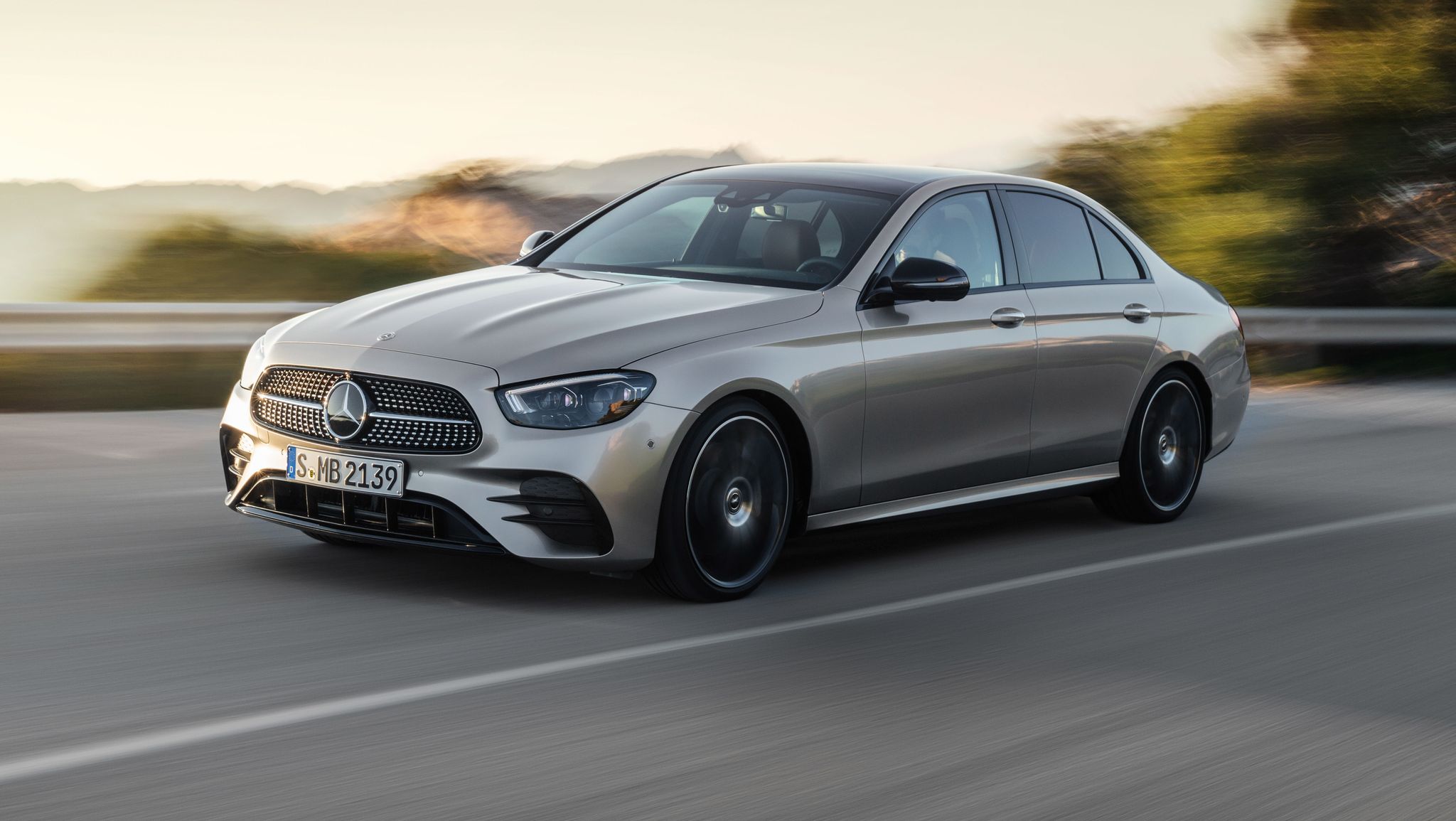
The camshaft issue is particularly common in vehicles with higher mileage, where oil degradation and lack of proper lubrication have taken a toll on the engine’s internal components.
Regular oil changes using high-quality oil are essential to preventing this problem. Although the M112 engine is generally reliable, owners of older E-Class models should be aware of the potential for camshaft-related issues and should budget for preventative maintenance to avoid costly repairs down the line.
In the world of automotive engineering, the camshaft plays a critical role in ensuring a vehicle’s engine runs smoothly and efficiently.
Cars with legendary camshafts, such as the Nissan Skyline GT-R, Chevrolet Corvette C5, and Ford Mustang 5.0L Coyote, demonstrate the importance of precision and durability in engine design.
These vehicles are known for their high-performance capabilities and long-lasting reliability, thanks in no small part to their camshaft systems.
The camshafts in these engines are designed to endure high levels of stress, enabling their engines to deliver consistent power while maintaining reliability over time.
Enthusiasts and tuners alike praise these vehicles for their ability to handle modifications and high-performance driving without experiencing significant camshaft failures.
These legendary camshafts have helped solidify the status of their respective models as icons in the automotive world.
However, not all cars are fortunate enough to have a camshaft system that withstands the test of time.
Models like the Audi A4 1.8T, BMW E46 3 Series, and Volkswagen Golf GTI with the 2.0T FSI engine have shown that camshaft issues can arise, particularly when maintenance is neglected or when certain design flaws are present.
Camshaft failures in these vehicles can lead to a cascade of engine problems, from poor performance to total engine failure. For many owners, these issues can result in expensive repairs and can even affect the resale value of the car.
Whether a car is equipped with a legendary camshaft or one that is prone to failure, regular maintenance and timely repairs are essential to ensuring long-term reliability.
For buyers looking at used cars, understanding the camshaft system and its potential weaknesses is crucial in making an informed decision.
The quality of the camshaft, and the engine as a whole, is a key factor in a vehicle’s overall longevity and performance.
Also Read: 5 Cars With Smooth Gear Shifts and 5 That Feel Clunky

